Filter by
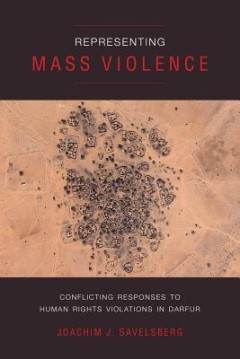
Representing Mass Violence : Conflicting Responses to Human Rights Violations…
How do interventions by the UN Security Council and the International Criminal Court influence representations of mass violence? What images arise instead from the humanitarianism and diplomacy fields? How are these competing perspectives communicated to the public via mass media? Zooming in on the case of Darfur, Joachim J. Savelsberg analyzes more than three thousand news reports and opinion …
- Edition
- -
- ISBN/ISSN
- 9780520963085
- Collation
- xix, 341 p.
- Series Title
- -
- Call Number
- 962.4043
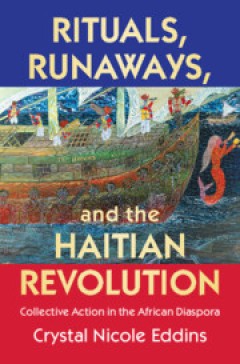
Rituals, runaways, and the Haitian Revolution : collective action in the Afri…
The Haitian Revolution was perhaps the most successful slave rebellion in modern history; it created the first and only free and independent Black nation in the Americas. This book tells the story of how enslaved Africans forcibly brought to colonial Haiti through the trans-Atlantic slave trade used their cultural and religious heritages, social networks, and labor and militaristic skills to su…
- Edition
- Edisi 2
- ISBN/ISSN
- 9781009256148
- Collation
- xiii, 355p.: ill.
- Series Title
- -
- Call Number
- 305.89607294 EDD r
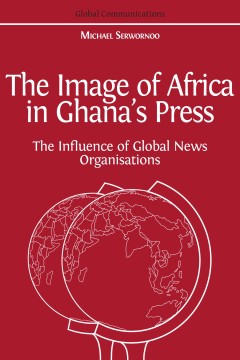
The Image of Africa in Ghana's Press: the influence of global news organisations
The Image of Africa in Ghana’s Press is a comprehensive and highly analytical study of the impact of foreign news organisations on the creation of an image of Africa in its own press. Identifying a problematic focus on the Western media in previous studies of the African media image, Serwornoo uses the Ghanaian press as a case study to explore the effects of centuries of Afro-pessimistic disc…
- Edition
- -
- ISBN/ISSN
- 9781800640436
- Collation
- x, 242p.; ill.
- Series Title
- -
- Call Number
- 363.80963 MIC t
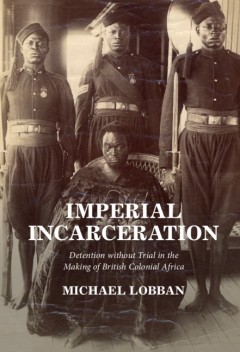
Imperial incarceration : detention without trial in the making of British col…
For nineteenth-century Britons, the rule of law stood at the heart of their constitutional culture, and guaranteed the right not to be imprisoned without trial. At the same time, in an expanding empire, the authorities made frequent resort to detention without trial to remove political leaders who stood in the way of imperial expansion. Such conduct raised difficult questions about Britain's …
- Edition
- -
- ISBN/ISSN
- 9781009004848
- Collation
- xii, 450p.
- Series Title
- Studies in legal history
- Call Number
- 345.960231 LOB i
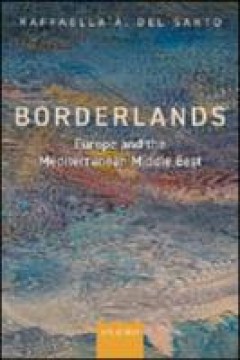
Borderlands : Europe and The Mediterranean Middle East
The book proposes a profound rethink of the complex relationship between Europe—defined here as the European Union and its members—and the states of the Mediterranean Middle East and North Africa (MENA), Europe’s ‘southern neighbours’. These relations are examined through a borderlands prism that conceives of this interaction as one between an empire of sorts that seeks to export its …
- Edition
- -
- ISBN/ISSN
- 9780198833550
- Collation
- 205 p : ill.
- Series Title
- -
- Call Number
- 327.401822
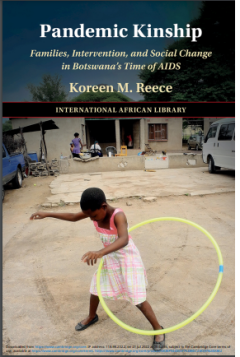
Pandemic Kinship : Families, Intervention, and Social Change in Botswana's Ti…
Shaped around the stories of one extended family, their friends, neighbours, and community, Pandemic Kinship provides an intimate portrait of everyday life in Botswana's time of AIDS. It challenges assumptions about a 'crisis of care' unfolding in the wake of the pandemic, showing that care - like other aspects of Tswana kinship - is routinely in crisis, and that the creative ways families navi…
- Edition
- -
- ISBN/ISSN
- 9781009150200
- Collation
- xiii, 328p, : ill
- Series Title
- -
- Call Number
- 306.85096883 KOR
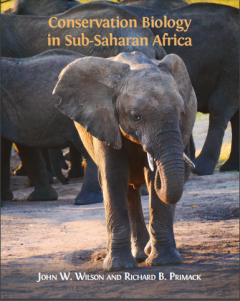
Conservation Biology in Sub-Saharan Africa
Conservation Biology in Sub-Saharan Africa comprehensively explores the challenges and potential solutions to key conservation issues in Sub-Saharan Africa. Easy to read, this lucid and accessible textbook includes fifteen chapters that cover a full range of conservation topics, including threats to biodiversity, environmental laws, and protected areas management, as well as related topics such…
- Edition
- -
- ISBN/ISSN
- 9781783747528
- Collation
- xxxiii, 696p,: ill
- Series Title
- -
- Call Number
- 334 JOH
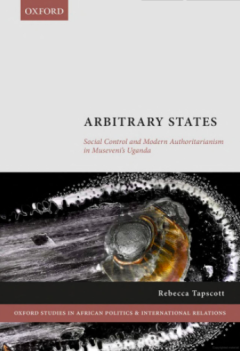
Arbitrary states : social control and modern authoritarianism in Museveni's U…
This book places literature on the post-colonial African state in conversation with literature on modern authoritarianism, using this to frame over ten months of qualitative field research on Uganda's informal security actors - including vigilante groups, local militias, and community police. Based on this research, the book presents an original framework - called 'institutionalized arbitrarine…
- Edition
- 1
- ISBN/ISSN
- 9780198856474
- Collation
- 230p
- Series Title
- -
- Call Number
- 306.2089935 TAP a

Mathematics education in East Africa : towards harmonisation and enhancement …
This book is a valuable resource for policymakers and practitioners as it brings insights mainly from developing countries where relatively less research activity takes place. It is also a valuable resource for courses in mathematics education in the teacher education colleges, and departments of education in the sub-Saharan Africa region. In the increasingly global and technological world math…
- Edition
- -
- ISBN/ISSN
- 9783319272580
- Collation
- vii, 90 p. : ill.
- Series Title
- -
- Call Number
- 510.71 HAL m
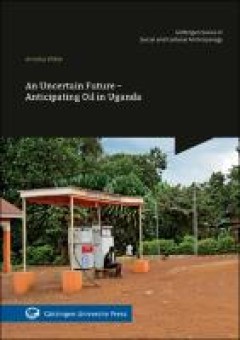
An uncertain future : anticipating oil in Uganda
The discovery of oil in Uganda in 2006 ushered in an oil-age era with new prospects of unforeseen riches. However, after an initial exploration boom developments stalled. Unlike other countries with major oil discoveries, Uganda has been slow in developing its oil. In fact, over ten years after the first discoveries, there is still no oil. During the time of the research for this book between 2…
- Edition
- -
- ISBN/ISSN
- 9783863953607
- Collation
- 277 p. : ill.
- Series Title
- -
- Call Number
- 330 WIT a
 Computer Science, Information & General Works
Computer Science, Information & General Works  Philosophy & Psychology
Philosophy & Psychology  Religion
Religion  Social Sciences
Social Sciences  Language
Language  Pure Science
Pure Science  Applied Sciences
Applied Sciences  Art & Recreation
Art & Recreation  Literature
Literature  History & Geography
History & Geography